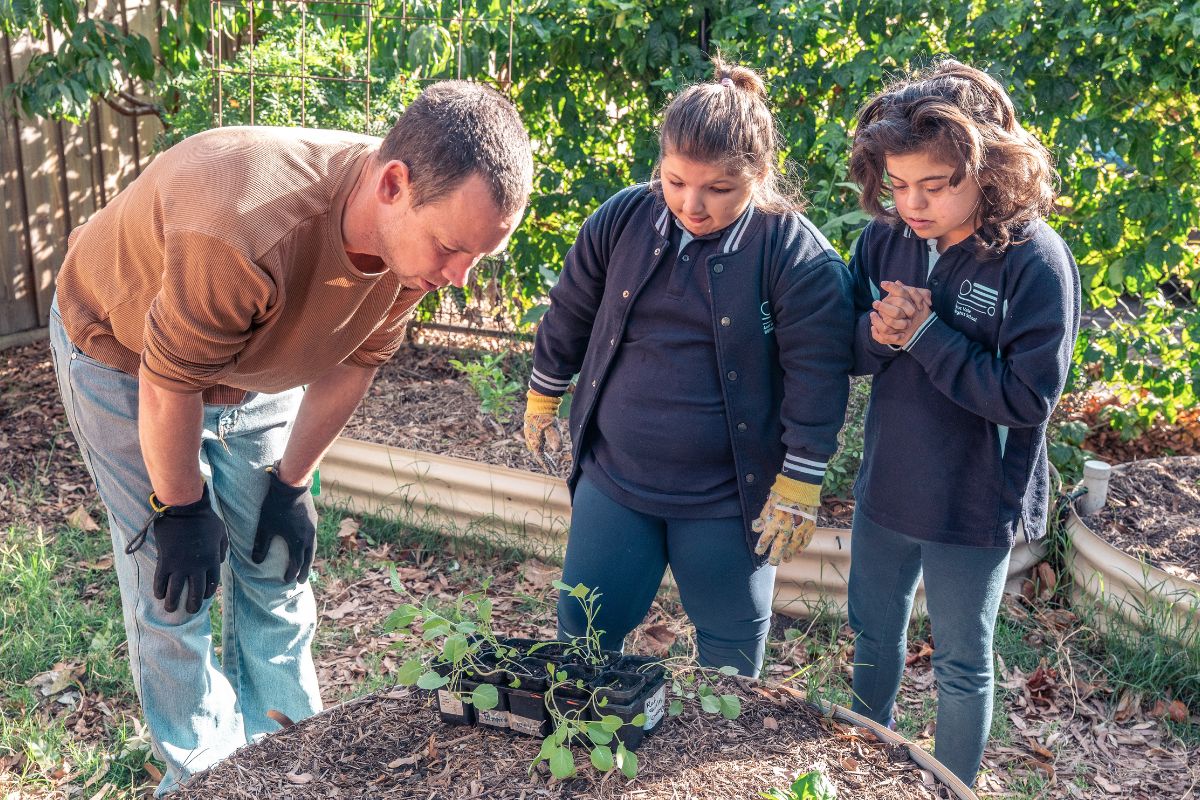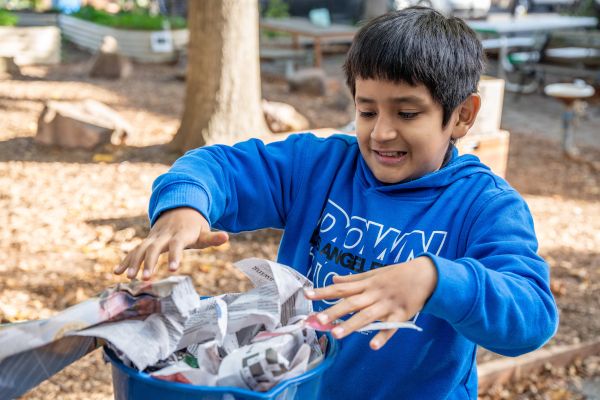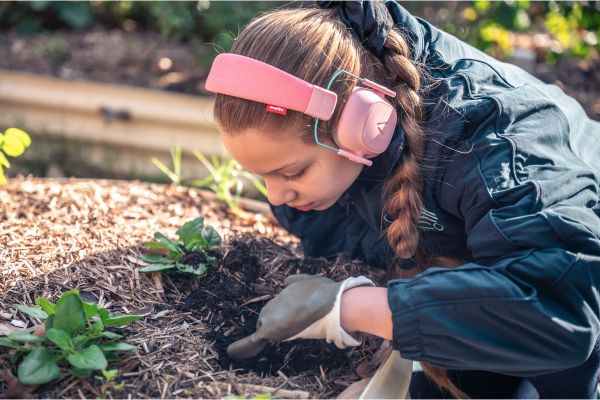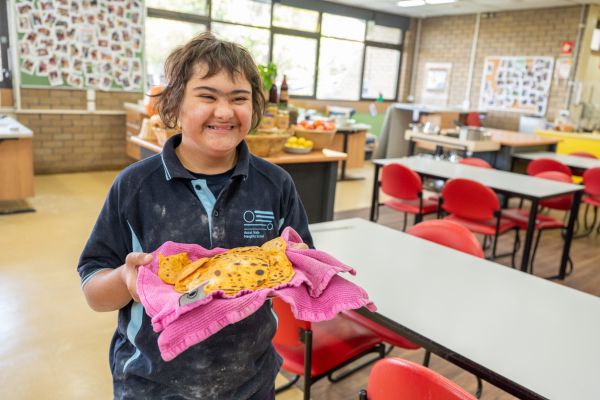School kitchen gardens for all

- The Kitchen Garden Program is designed to include children of all ages, abilities and learning needs, with proven benefits for engagement and wellbeing.
-
Members can access practical resources and adaptable tasks to ensure every student can participate meaningfully.
-
Starting with small adjustments, anyone can make their kitchen and garden more welcoming.
The Kitchen Garden Program continues to grow, just like the gardens themselves. By recognising every child, every background, and every ability, we’re helping schools, early childhood services and communities build skills, confidence, and a sense of belonging that lasts well beyond the classroom.
Research shows that 1 in 10 school students have a disability, and that children and young people with disability fare less well than their peers in education. These inequities can have lifelong implications, with VicHealth research summarising that people with disabilities experience substantial disadvantage and much poorer health outcomes than the general Australian population.
Because inclusivity is always a work in progress, our Kitchen Garden Program team identified the need for more dedicated teaching resources to empower educators to adapt the program to meet a vast array of learning needs.

The Stephanie Alexander Kitchen Garden Foundation got to work on a 12-month project entitled ‘School kitchen gardens for all’, supported by the generous funding of the Philips Foundation and the Pierce Armstrong Foundation.
Led by our knowledgeable Professional Development Coordinator, Kate Beckwith (who is also an occupational therapist and former garden specialist), a series of consultations were crafted with an advisory group of Kitchen Garden Program educators from schools working with students with additional needs. Educators from Holland Street School (Western Australia), Tenison Woods College (South Australia), Ascot Vale Heights School (Victoria) and Aspley Special School (Queensland) were part of the group.
The project aimed to understand the needs of the educators working in this space, identify and develop resources and tools in response, and make the Kitchen Garden Program inclusive, impactful and engaging for all.
New resources for inclusive kitchen and garden tasks
A key outcome is our new collection of resources for Kitchen Garden Program members, with practical tips and adaptable tasks designed to get everyone involved.
The principles focus on:
-
offering choice
-
considering sensory needs and hyper-sensitivities
-
playing to students’ strengths and preferences
-
communicating concisely
-
providing breaks
-
being patient and flexible

For mindfulness, the resources suggest calming and repetitive tasks like drawing a picture of the garden or shredding leafy greens. For students with mobility considerations, tabletop gardening and adaptive equipment make participation easier. And for those with extra energy, physical tasks like building a compost lasagne or kneading dough can help channel emotions in positive ways.
The collection includes many more tips around heightened sensitivities, re-engagement and quick gratification, as well as literacy word cards, posters for kitchen and garden equipment, advice on approaching new foods, and a skillset assessment template.
Start small, dream big
Making the kitchen and garden more inclusive doesn’t have to mean big changes, even small adaptations can have a huge impact.
Educator Leanne Boyd, who has more than three decades of experience working with students with diverse learning needs, makes sure every student at The Crescent School in Goulburn feels included.
“Everyone has to have a job,” she says. “If you’re making a recipe, everyone has something to chop, grate, or peel. One boy liked washing up, and he was really good at it, but he didn't like being wet. So, we ordered him a raincoat to do it in – it’s just about adapting.”
At Bundaberg Special School, where students have a wide range of sensory needs, all plantings are edible or non-toxic to ensure a safe environment. Earlier this year, we hosted a virtual tour of the school, which has been a member of the Kitchen Garden Program for over a decade, giving other members the chance to see how the program is applied for different abilities.

At Ascot Vale Heights School, which caters to students with additional learning needs, children are encouraged to work as independently as possible to develop skills in teamwork, problem solving, creative thinking and enhanced communication.
A commitment to all Australian children
The Foundation is committed to making the Kitchen Garden Program welcoming and equitable by continually reviewing its offerings, adapting our language and messaging, and ensuring children of all abilities and backgrounds are represented and celebrated.
Kitchen Garden Program members can find the Inclusivity collection on the Shared Table. To learn more about the project, contact Kate Beckwith kate.beckwith@kitchengardenfoundation.org.au.
Keen to kick-start the learning benefits of the Kitchen Garden Program in your school or early childhood service? Contact our Support Team, available five days a week on 1300 072 543 or membership@kitchengardenfoundation.org.au.
< Back to Latest News
